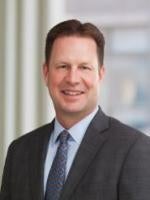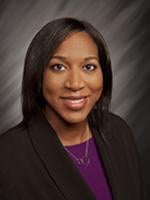The U.S. Court of Appeals for the Eighth Circuit recently declared that experts must, at the least, address obvious alternate causes and avoid contradicting themselves when submitting affidavits long after their depositions have been taken. The Eighth Circuit affirmed the entry of summary judgment for DePuy Orthopaedics, Inc., in a product liability case involving a fractured hip stem. The court found that the plaintiff’s expert’s defect and causation testimony was properly excluded by the U.S. District Court for the Eastern District of Missouri in Redd v. DePuy Orthopaedics, Inc., 2017 WL 2859536 (8th Cir. July 5, 2017).
 In Redd, the plaintiff, a 5-foot-2 inch woman weighing 302 pounds when her total hip replacement was performed, had for years taken immunosuppressant drugs that compromised her bone stock. When the hip stem was removed, the surgeons discovered a lack of bone ingrowth at the top of the stem. Given her risk factors, the plaintiff’s doctors were aware of this possibility.
In Redd, the plaintiff, a 5-foot-2 inch woman weighing 302 pounds when her total hip replacement was performed, had for years taken immunosuppressant drugs that compromised her bone stock. When the hip stem was removed, the surgeons discovered a lack of bone ingrowth at the top of the stem. Given her risk factors, the plaintiff’s doctors were aware of this possibility.
The plaintiff filed suit, asserting negligence and strict liability claims based on product defect and failure to warn with respect to the initial hip stem implant. The plaintiff hired a metallurgy expert to opine about the cause of the fracture. The expert “had done research in fatigue fracture initiation in metal objects,” but he had never performed this research “in metal objects implanted in the human body.” His analysis considered metallurgical factors, but not any biomechanical factors and stated that a manufacturing defect caused the fracture even though he “did not review any records related to the manufacturing process . . . .” He declared that the “premature and sudden fatigue fracture” of the plaintiff’s hip stem was caused by the improper “phase” of the metal along with the “grain size” of the metal alloy.
After the close of discovery, DePuy moved for summary judgment and the exclusion of the expert’s testimony under Federal Rule of Evidence 702 and Daubert. In response, the plaintiff submitted an affidavit from the expert testifying that the “phase” of the metal violated DePuy’s own specifications and that environmental factors would be “secondary in the cause of the fracture when the material is inherently defective to begin with.” DePuy responded with a motion to strike the expert’s affidavit on the grounds that it impermissibly supplemented or changed the expert’s opinion after the close of discovery.
The District Court granted DePuy’s motion to exclude portions of the expert’s testimony, concluding that, though he was qualified in the area of metallurgy, he lacked a scientific or factual basis “to conclude that there was a manufacturing defect or to opine on causation.” The District Court found that the expert failed to consider the issue of the forces that were exerted on the implant inside the plaintiff’s body. It also granted the defendant’s motion to strike the expert’s affidavit on the grounds that his statements directly contradicted his deposition testimony, saying “[A] party cannot change testimony just to avoid summary judgment or a Daubert motion.” Without any expert testimony on defect or causation, the plaintiff could not avoid summary judgment.
On appeal, the Eighth Circuit affirmed the District Court’s holdings. The Eighth Circuit held that the district court had not abused its discretion when it excluded the affidavit, which “arguably crossed the line between clarifying prior testimony and changing prior testimony.” The court also concluded that the District Court acted within its discretion in excluding the expert’s testimony on causation and defect. The court explained that, while “an expert need not rule out all possible causes of an injury, an expert nonetheless should adequately account for obvious alternative explanations.” In this case, the expert failed to consider the impact of the biomechanical forces exerted on the implant as it was placed in the plaintiff’s body.
Redd builds on prior case law, confirming that experts must address obvious alternate causes and avoid directly contradicting themselves to withstand a Daubert challenge. As demonstrated in this case, such standards help prevent scientifically flawed claims from going to a jury.






 />i
/>i

